
by Lisa Fuller | Apr 13, 2015 | Communication, General, Parenting, Sibling Issues
Sibling strife is a hot button issue. When I started writing a post on the topic it quickly became clear that I was going to write a Sibling Series to scratch the surface of this multifaceted issue.
Part One: Don’t Worry: There’s Hidden Treasure in Sibling Battles
Part Two: Your Surprising Role in Sibling Fights (& How to Change it)
Part Three: What You Say Either Helps or Hurts Sibling Relationships
Additional Resources
It’s my hope that these posts and resources inspire consideration, conversation and ultimately a deeper understanding of how we can encourage greater harmony between our children.
As always, please share your insights below in the comments. And if you’re not already receiving updates directly to your email, join me.
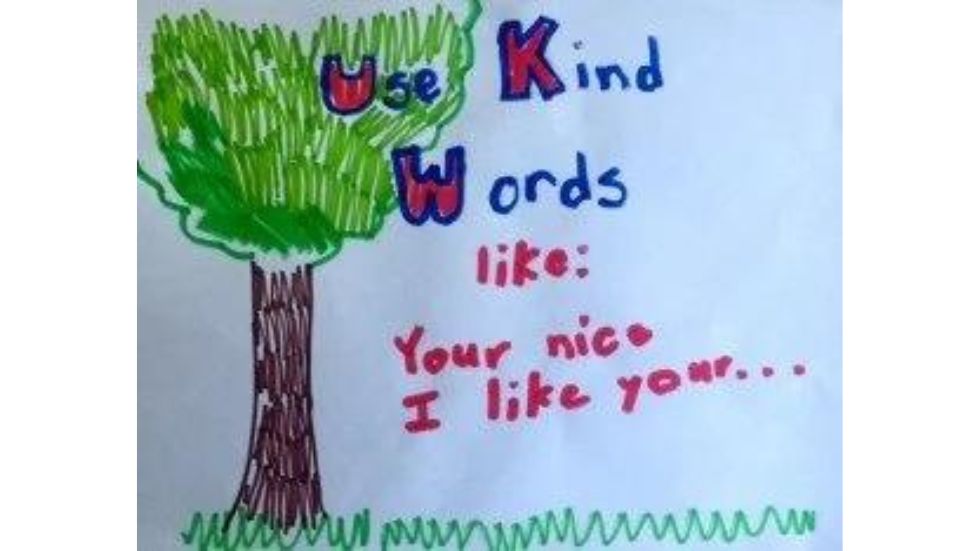
by Lisa Fuller | Apr 13, 2015 | Communication, General, Parenting, Sibling Issues
My oldest went off to college in the Fall, leaving his two younger siblings behind.
I wondered how his leaving would impact our family dynamic. And now, seven months in, I have an idea (hint: it’s not pretty).
What’s emerged is a fierceness between the remaining two. It’s like a cushion has been removed and now there’s the raw friction of two hard stones, one sharp (older one needing to be boss) and one holding firm (younger showing resolve to hold her own).
Side note: when I spoke to the kids about how I’d be depicting them for this article, they argued that they were each the one standing firm while the other was the nudger and antagonizer — confirming that there’s never “one true story” of what’s going on….
It reminds me of what Ken Kesey wrote in One Flew Over the Cuckoo’s Nest, “It’s the truth even if it never happened.”
Because I’ve parented for a while now, I know this dynamic, whatever it is, will change. It always does. But sometimes a simple dinner with the two of them is akin to nails running down the chalkboard. I’d love to run screaming from room and it makes me wonder, HOW IN THE WORLD DID I CREATE THESE MONSTERS?!
The other night at dinner we talked about what we could do to help improve the situation. My daughter (the younger one) decided that she’d make signs reminding us all of important relationship behavior.
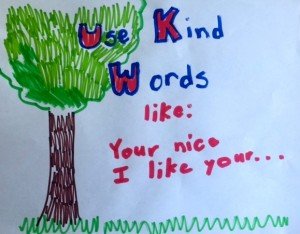
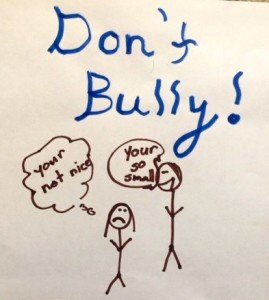
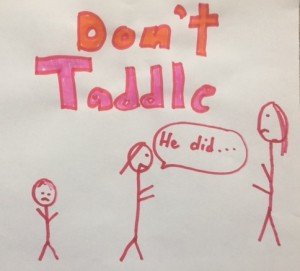 I love how her drawings show different perspectives.
I love how her drawings show different perspectives.
Once she’d created them she didn’t care to hash it out any further….
This is often the case with kids — it’s the DOING that’s important — not the processing.
Since she made these reminders, I’ve actually noticed more harmony – crazy magic.
The good the bad and the ugly news is that sibling issues, while highly irritating and button pressing, are normal and to be expected.
If you had brothers and sisters, think back to your own childhood… what did you learn from them?
Here’s a list from parents in my Parenting with Positive Discipline series:
- how to tease
- how to manipulate
- how to negotiate
- how to take turns/share
- how to stand up for someone
- how to keep company
- how to eat fast
- how to hate intensely
- how to love intensely
- how to be loyal
- how to fight
- how to defend
- how to ask for what you want or need
Sound familiar?
[tweetthis hidden_hashtags=”#parenting, #sibling battles”]We learn invaluable life lessons from our siblings.[/tweetthis]
My sister recently shared Jeffery Kluger’s Ted talk, “The sibling bond,” with me and my brother. Mr. Kluger tells stories illustrating the powerful influence siblings have on each other.
Here’s what stood out for me:.
There may be no relationship that affects us more profoundly than that of our siblings– none closer, harder, sweeter, happier, sadder, more filled with joy or fraught with woe than the relationship we have with our brothers and sisters. The sibling bond can be a thing of abiding love, our parents leave us too early, our spouses come along too late, our siblings are the only ones who are with us for the entire ride – over the arch of decades – there may be nothing that defines us and forms us more powerfully than our relationship with our brothers and sisters.
Siblings learn when to stand up for themselves, when to stand down – love, loyalty, honesty, sharing, caring, compromise, the disclosure of secrets and the keeping of confidences.
Siblings may be among the richest harvests of the time we have here.
And finally (I’ve paraphrased),
[tweetthis]Your sibling is someone you’ve road tested life with before having to get out there and travel it on your own.[/tweetthis]
Will it impact how we respond to sibling fighting if view it through this lens? I think so. Relationships are messy — we’re all learning all of the time.
When nails scratch their way down the chalkboard, take heart. Know you’re in good company. Breath, remove yourself if you can, and remember that tremendous learning is happening.
This week view sibling battles as opportunities to learn life lessons. Notice what’s being learned in your house? Notice what lessons you’d like to see more and less of and share in the comments below.
Stay tuned for Part Two: Your Surprising Role in Sibling Fights (and How to Change it)
Wanna talk? It’s easy to schedule a time here.

by Lisa Fuller | Feb 16, 2015 | Connection & Love, Encouragement, Feelings & Emotions, Mutual Respect, Parenting, Self-care, teenager
We want our kids to be happy and feel good about themselves — knowing they’re struggling can feel unbearable.
Today’s post is about how to deal with your emotions around your child’s disappointment — a question that Michelle so eloquently asked last time. Here’s my own poignant parenting story….
Years ago when my son, I’ll call him Sunny, was 11 or 12, baseball season had ended and he wanted, with all his heart, to make the all-star team so that he could continue to play. He’d been chosen in years past but knew it was competitive. Being Sunny, he was optimistic and it was clear that playing more baseball was the most important thing in the world to him — hands down. A perfect recipe for parental anxiety.
Each day he’d come home and ask, mom, did the coach call? A look of hopeful anticipation in his eyes.
My heart broke as I had to tell him, 3 or 4 days in a row that no one had called. Silence. Are you sure? Ouch.
Sunny was the kid who went through life, like a duck, letting harsh things that happened to him roll right off. So when he uncharacteristically invested himself in this outcome, it was all the more painful to witness.
At the time I knew that a rescue attempt was ill advised. I felt helpless and didn’t know what to do. While it sounds like a minor letdown now, this disappointment was HUGE in his life, and I was at a loss for how to support him.
Looking back I think his dad or I could have shared our own painful experience if only to join him in that dark space.
I doubt it would have made him feel better but company always helps.
As the parent, I needed to also take a stance that would help me better cope with the urge to jump in and make things better.
As a coach, I often help clients find alternate points of view on an area of their life where they feel stuck.
Below is an example of different perspectives you can step into to shift YOUR experience when your child goes through their inevitable disappointments.
GRITTY VIEW: The research is clear that children who’re able to persevere through trials and tribulations have an essential characteristic for success – grit.
While they’ll remember epic disappointments, if they’re able to weather them with a sense of grounded security, your kids will more likely learn to forge ahead, a quality that will undoubtedly serve them well in life.
Parental fixing (or on the flip-side, shaming) blocks your child from learning this valuable lesson. Fixing and shaming, while they look different, convey the same message to your kid — I don’t believe in you.
[tweetthis hidden_hashtags=”#parenting”]Don’t treat your son like a prince unless his father’s the King, if you do, life will be a rude awakening.[/tweetthis]
I don’t remember where I heard this but I love its clear wisdom.
POETIC VIEW: “For after all, the best thing one can do when it is raining is let it rain.” ―Henry W. Longfellow
Broadening your perspective through poetry and philosophy can be just the tonic you need to pull you out of the painful, cramped feeling of “not enough” that tends to overwhelm you when your
child feels badly.
 MINDFUL VIEW: Practicing mindfulness strengthens your ability to have boundaries.
MINDFUL VIEW: Practicing mindfulness strengthens your ability to have boundaries.
The Quick Calm Technique created by Andy Smithson of truparenting.net is a tool that when practiced can move you from heated to less heated 🙂
Here it is in a nutshell:
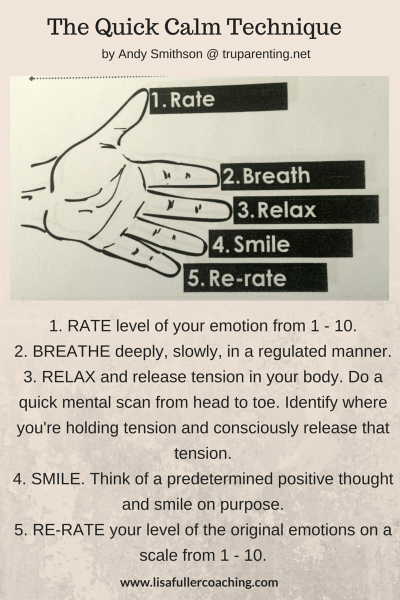
Click above to learn more about the entire Quick Calm Toolkit
Use this technique to bring yourself down from anger, anxiety, sadness… these steps enable you to respond more proactively — more mindfully — to any situation you find yourself caught up in. You have power over how you feel.
PASSIONATE VIEW: When you take time to nurture your own passions, you get less tied up in knots about the minutiae of your child’s life. This helps you avoid the unwitting substitution of your child’s experiences for your own.
Here are some examples of activities (outside of work and parenting) that parents have shared with me that bring meaning and passion to their lives:
- join an adult sports team
- volunteer in an underserved school
- write a blog or novel
- coach a team (outside of your child’s)
- volunteer at a hospital
- train for a triathlon
If you don’t want to do it for yourself, then you’ve got to do it for the sake of your kid. Only when you nourish yourself and cultivate your own interests will your child see a way to do this for herself.
MY VIEW: One of the gifts I’ve found through using Positive Discipline is a path to keep things simple.
If I’m bending over backward to make something happen for my kid, I hear that voice inside warning me something’s off or as Michelle put it — “THAT’s INSANITY — DON’T DO IT!”
Still the impulse and overwhelming sadness remains.
Don’t push it away. Rather, let yourself feel sad and have a chance to heal from your own old wound. When you get triggered by your child’s disappointments — take that step back from your kid and look inside — work on your own or with a therapist to experience your not so buried feelings so that you can move on rather than continuing to stuff it down or overreact to events in your child’s life. Be real and feel your feelings.
When you feel stuck in your own or your child’s disappointment, try one of these perspectives or cultivate a view of your own. Standing in a different place could be just the reset you need to reorient yourself and move forward in the direction you want to go.
If you haven’t already done so, join me on this journey!
Wanna talk? Schedule a time here.
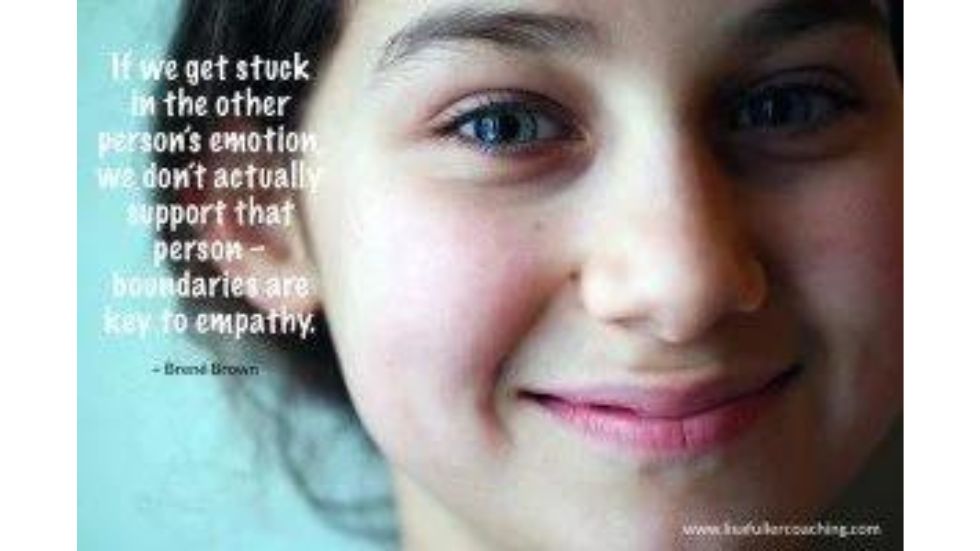
by Lisa Fuller | Jan 29, 2015 | Communication, Connection & Love, Encouragement, General, Parenting
Q: As the mother of a middle school girl, I struggle to be empathetic without jumping on the roller coaster of her ever-changing moods, emotions and dramas. And, as a woman in her late 40s, my emotions are often a 6 Flags of hormonally-induced thrills, so staying detached feels nearly impossible at times
Recently my seventh grader tried out for the school musical. After a series of micro disappointments this Fall (not making the “A” soccer team, getting put into an advisory group without any good friends, being just slightly outside of the ‘cool’ group, etc.), she was serious about getting a good part for the show. She practiced her song with a singing teacher several times and felt good about it.
Several days went by while she waited for the cast list to be posted. I worked on shifting her language away from ‘good’ and ‘bad’ parts in the show, to some limited success. I wanted to support her enthusiasm but it was draining to stay positive given my fear of the potential bad news ahead.
This daughter can be fairly stoic, but when she saw the cast list, she ran up to her room and sobbed so loudly I was afraid she would choke.
After a few minutes of trying to let her release her disappointment on her own, I went in to check on her. With your thoughts of empathy fresh in my mind, I resisted the temptation to tell her the emotions would pass or it didn’t matter or that the part was probably better than she thought, blah, blah, blah.
Instead, I let her cry, supporting the wildly strong feelings raging through her. Unfortunately, it was just a matter of time before I was crying too, and then we were both sobbing at the injustice of the world (did I mention I am a pre-menopausal woman with raging emotions?)
I managed to get myself together and put her to sleep, but then I could not stop crying. I just felt so sad for her and could not put it away. It took all the strength I had not to email the drama teacher and ask her if there was any way to revisit the cast list. Which is just a simply INSANE thing to even think, let alone seriously consider!
So here’s my question: how can we support our children with their dreams, projects, efforts and goals (especially our daughters) without getting enmeshed in the outcome? How can we let our older children navigate the disappointments and challenges of life without getting sucked into the emotional turmoil that goes along with the journey? Where do you draw the line between empathy and over involvement/attachment?
A: First, Michelle, congratulations on your success in avoiding many of the common barriers to empathy. What you did was no small feat — staying out of judgement, taking her perspective and touching a place in yourself (maybe a bit too deeply) that understood her feelings.
Simply defined as “the ability to understand and share the feelings of another,” empathy is nuanced. While you were able share your daughter’s feelings, it proved difficult to pull yourself out.
To answer your question, here are my ideas to strengthen your empathetic response even more while simultaneously moving you out of the helicopter parenting zone altogether.
From Helicopter Parenting to Empathy
- Validate her feelings. In your story Michelle, you give nice examples of how you did this — letting her cry and stay in her feelings, etc.
- Resist the urge to fix. You write, I resisted the temptation
 to tell her the emotions would pass or it didn’t matter or that the part was probably better than she thought, blah, blah, blah. This is cause for celebration! When you’re done partying let’s look at what you describe your fear of the potential bad news that she didn’t get a “good” part. Your feeling of fear fuels your underlying belief that something needs to be fixed. You can do one of two things here, keep your fear AND bite your tongue, which
to tell her the emotions would pass or it didn’t matter or that the part was probably better than she thought, blah, blah, blah. This is cause for celebration! When you’re done partying let’s look at what you describe your fear of the potential bad news that she didn’t get a “good” part. Your feeling of fear fuels your underlying belief that something needs to be fixed. You can do one of two things here, keep your fear AND bite your tongue, which
you did, or, with the help of a friend, coach or therapist, internally shift your perspective from disappointment = bad to disappointment = opportunity for growth. (I’ll go into this more in my next post). What I’m suggesting is more than a surface shift — that’s why it requires support.
- Share your own story of disappointment. By sharing a simple one sentence story of a time you didn’t make the team or you weren’t invited to the party, you let your daughter know that she’s not alone and most importantly, that she belongs. (A sense of belonging in family is profoundly impactful to a child’s sense of well-being.) For example, I remember when I longed to be chosen to play the role of Mary in the church nativity, yet I wasn’t picked and I felt terribly sad. One sentence that’s it. I can hear parents ask “Isn’t there more to say than that?!” No — children are self focused, your goal here is to simply let them know you’ve been there — voila.
- Be present. It’s not what you say that will make a difference, but simply your presence, your ability to be with your child. Ground yourself in what’s most important to you, tuck your phone and other distractions away and like the Beatles so beautifully sang, let it be.
- Practice mindfulness. Mindfulness strengthens our ability to have boundaries which according to Brené Brown’s research is key to empathy. If we get stuck in the other’s emotion, we don’t actually support that person – boundaries are key to empathy.
One of the many gifts in your story is how fully engaged you are in your daughter’s life.
Thank you Michelle for sharing your story and question, deepening our understanding of empathy. I appreciate and honor your willingness to be vulnerable — it can feel scary to divulge our struggles when we’re “supposed to be” the all-knowing parent!
Are you wanting someone to walk you through a parenting challenge like the one that Michelle shared? If so, visit my schedule to find a time for us to meet via phone or Skype.
I know that parenting is important to you — it’s worth taking time for yourself, so that you can be the parent you want to be, even in your most challenging circumstances.
Take a moment to share in the comment section below how you relate to Michelle’s story and what you want to remember from today’s post.
If you haven’t already done so, join me on this journey!
Wanna talk? Schedule a time here.
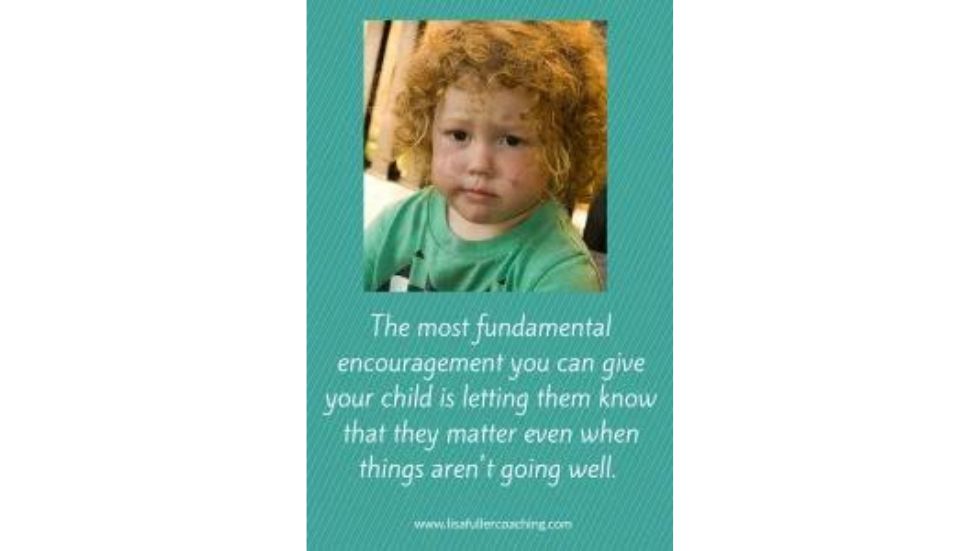
by Lisa Fuller | Jan 14, 2015 | Encouragement, Parenting, Self-regulation, Sibling Issues
During a parent education evening last week, I rattled on about the importance of encouragement in parenting and shared my favorite slogan, “Children Do Better When They FEEL Better.” Then an arm shot up.
One of the parents, Sarah, looked sincerely puzzled and asked a simple question that got every head in the room nodding:
“Encouragement and Positive Discipline are great when it’s a low stakes situation, but what about when safety is involved? How should I respond to a threat of physical harm from one of my children to the other in a positive way?”
When I asked her to explain her situation, Sarah told the following story (which may be very familiar to anyone with children close in age and remembers, or is going through, the baby/toddler sibling combination):
It was the end of the day, about an hour before my husband got home… typically my roughest time. Gus (3) was zipping around the house on his tricycle when he headed straight for his little brother (6 months), stopping just a hair from Fisher’s little fingers. I told him not to do that, that he could hurt Fisher and it didn’t feel safe to me. A minute later, he did the exact same thing and I basically flipped my lid. I yelled, “STOP,” stormed over to Gus, pried him from the tricycle, and let him cry on the ground as I put the trike outside. I felt really protective of Fisher and that I needed to stop Gus. I felt awful for yelling and reacting in a physical way because he was so sad afterwards. But how else could I show him that I was in charge?
Sarah’s story highlights the primal nature of being a parent. We’re hard-wired to protect our children from a perceived threat, even if that threat is their sibling. Keeping your children safe is your first priority as a parent and if a quick intervention — sometimes ungraceful or inflated — is urgently needed to protect a baby or younger sibling from harm, you need to do that, and quickly.
But I encouraged Sarah (as I would any parent) to turn from the immediate danger to look for connection and encouragement with the older child instead of punishment. I know this sounds crazy and counter intuitive but here’s what Positive Discipline teaches us:
The most fundamental encouragement you can give your child is letting him or her know they’re significant even when things are not going well.
(Significance here means has value, has meaning, matters to you and to the broader community, etc.)
What does encouragement look like in this situation? How can Sarah communicate that Gus has significance?
Sarah could physically block the trike from Fisher’s path (as it does not appear that Gus intended to stop on his own) and take a deep breath (essential in such a case).
Rather than lifting him off the trike right away, she could gently and firmly lift just Gus’ hands off the handlebars, look into his eyes and say:
Gus, wow, my he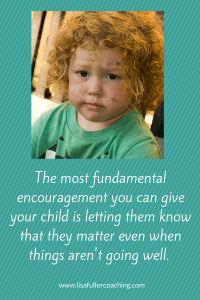 art is beating really fast because you really scared me by coming that close to Fisher’s hands. (Pause and breathe.) I could use a hug right now – could you give me a hug? Let’s bring your brother in, I bet we could all use a hug to feel better.
art is beating really fast because you really scared me by coming that close to Fisher’s hands. (Pause and breathe.) I could use a hug right now – could you give me a hug? Let’s bring your brother in, I bet we could all use a hug to feel better.
If this feels impossibly warm and fuzzy in such a potentially dangerous situation, consider this story from Gus’ point of view.
Rather than feel punished and sad (as he clearly did when the trike was chucked outside and he was left crying), Gus might think, “I did something wrong that really scared my mommy. What I do has an impact. I’m important to mommy and I can even help her feel better.”
The most fundamental encouragement you can give your child is letting them know that they have significance, even when they’re misbehaving.
In this scenario, asking for a hug is encouraging – very different than offering a hug because you’re engaging your child in being part of the resolution in an active way.
CHILDREN DO BETTER WHEN THEY FEEL BETTER! (we all do!)
Even when our children misbehave – if we can take steps to help them feel better, rather than making them feel worse, we are much more likely to encourage the kind of behavior we want to see from them in the future.
4 Steps for changing our response from punishment to encouragement:
- Shift your assumptions: Work on moving from my child will learn to behave by being punished to my child will learn to behave by getting the message that he or she matters.
For an example Sarah also shared a story of how she “felt a shift from the tricycle incident” just the day after my presentation. She wrote:
Gus was standing on his stool near the stove where I was getting ready to cook an egg. He tossed the hot pad that was on the counter onto the hot pan. I exclaimed surprise and got the pad out. I told him that was really scary and we absolutely do not throw things on the pan. He didn’t seem to be doing it out of defiance, which probably helped my reaction just be scared and then clear. But it was like we were scared together, learned something, and then moved on. No tears, no drama…so much better. It just gave me a taste of what you were talking about.
- Plan ahead: We’ve all yelled at and lost it with our kids, but by thinking through possible responses to common challenges ahead of time, we have a greater chance of pausing and consciously responding rather than giving our knee jerk reaction.
For example, I have a son who leaves what I call anonymous messes quite regularly around the house. This is a common challenge that I’ve planned ahead for by deciding on a few ways to respond when I’m next faced with his mess. Just yesterday, I found what looked like spilled detergent on the floor near the washing machine, covered with pillow cases. I suspected he left this mess and rather than simply accuse him and rant AT him for not taking the time to clean up, when I saw him I’d calmly asked a few clarifying questions, had he been doing laundry (yes), did he know about a spill, (why yes he did — this fessing up is progress), what could he do about it now? (This is a challenge for me but staying calm and building cooperation — progress, not perfection — is a huge victory for me and the only way I can do it is by planning for it).
- Assemble your parenting toolkit: Know your game plan by having tools at the front of your mind (Such as, “I need a hug,” asking WHAT & HOW questions like “what’s your idea to solve this problem?”). Sort through the Positive Discipline Tool Cards and pick three you’d like to try.
- Get support: Reach out for professional support. Even if it’s not with me, find someone who can help you weather the shift and put this new approach into action over time. It’s about progress — not perfection!
Regardless of the age of your child, encouragement through connection, in place of punishment is life changing — for both parent and child!
Please share in the comments below simple ways that you can remind your child of their significance (that they matter) today. In doing so, you’re giving us ideas that will encourage us to plan ahead – step 2 above! We’re all in this together 🙂
If you haven’t already done so, join me on this journey!
Wanna talk? Schedule a time here.
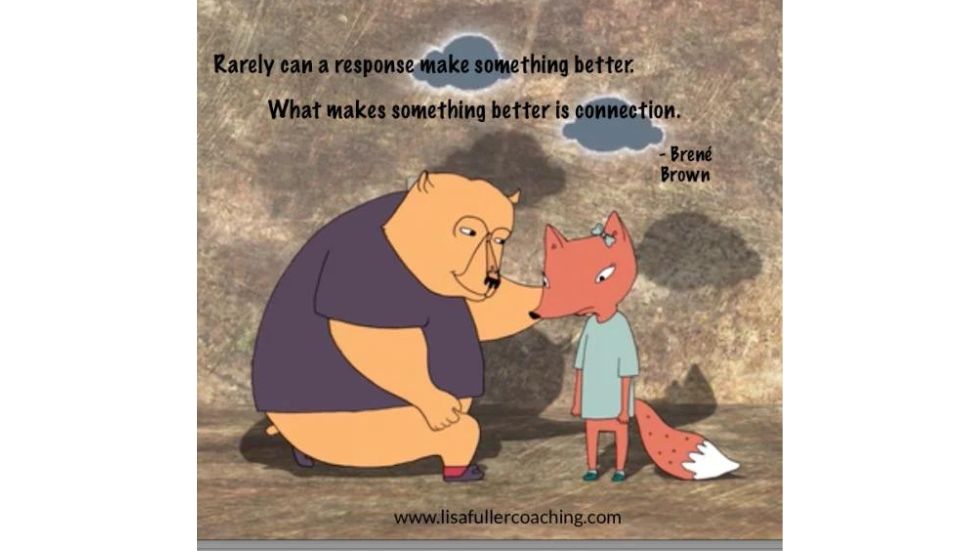
by Lisa Fuller | Dec 2, 2014 | Communication, General, Mutual Respect, Parenting, Self-regulation
In my last post, I shared how I missed an opportunity to practice empathy. Today’s story is the unexpected follow-up:
Songbird, my eight year old daughter, was at her cousin’s house. I texted my mom who was in charge, “When’s a good time for pick up?”
Mom texted back, “one hour.”
Five minutes later I receive another text, “Make that 30 minutes.” Then another message shot back “NOW.”
I head over to find Songbird curled up on the couch weeping – big sad boo hoo tears rolling down her cheeks. Mom starts to explain that cousin doesn’t want to share her new modeling clay – I hear a well-known refrain from across the room –
“It’s too special.”
Meanwhile, steady crying from Songbird.
Now comes the tongue biting as I work to keep these thoughts from tumbling out my mouth:
- It’s okay, you can put that on your Christmas list.
- I’m sure she’ll let you play with it, once she’s had it for a while.
- You’re really tired – it’s not a big deal. Now stop crying.
- Now don’t be that way Songbird, you know you can’t get everything you want.
Instead, having recently steeped myself in what empathy is and is not I wait, refrain from the above garden variety of knee jerk reactions.
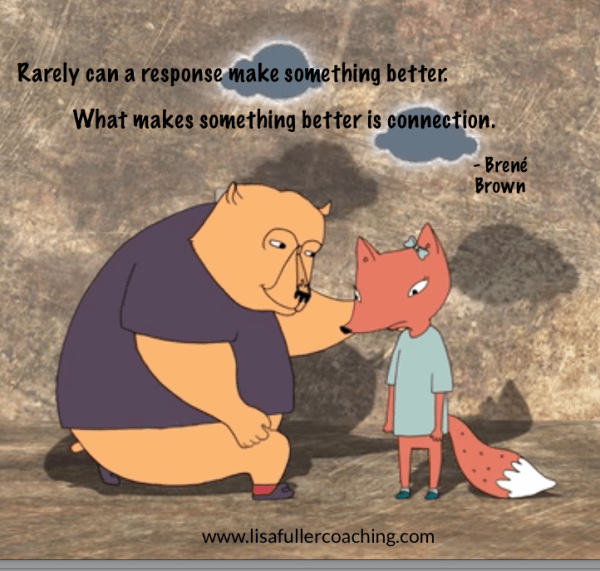 Then, consciously I say, you look sad.
Then, consciously I say, you look sad.
Songbird: Yes, I’m really sad!
Me: It seems like your heart hurts.
Songbird: Yes, (boo hooo) it hurts a lot.
Me: I’m sorry sweetie. Let’s say goodbye and go home.
Songbird: (Weep weep) Okay.
Wailing and sobbing continue as we head out to the car – they continue as we drive.
When we arrive home, 10 minutes later, Songbird gets out of the car, singing (makes sense), she skips her way to the door.
All of the usual responses we might use (those I listed above) diminish trust. When we use empathy — in this case, simply acknowledging and naming Songbird’s sadness — we build trust.
Expressing empathy in this situation was simple but not necessarily natural or easy – my bloody tongue is proof!
Simple, how? – all I did was genuinely acknowledge her emotion – naming it and finding a soft place in myself that has known that feeling too.
Not easy, how? I’ll put myself out there and say that although I’ve been teaching Positive Discipline classes for 10 years, empathy is a conscious practice, one that I only feel I’ve recently come to more fully understand.
So, today I’ve made a commitment to myself to practice deliberate empathy – and to expect I’ll make mistakes along the way. I’ll comeback around when I’ve missed the mark and attempt connection through empathy again and again.
According to the work of Theresa Wiseman and Kristin Neff, these five attributes of empathy are key. (You can see the animated video depicting these attributes, narrated by Brené Brown, by clicking the photo above.)
In this list, I’ve included examples of:
1. How I practiced this attribute in my story and
2. Common responses that act as barriers to empathy.
-
Staying out of judgment:
- Keeping my mouth closed about any internal evaluation I’m making as opposed to saying,
- “I don’t know why your cousin hasn’t learned how to share yet – at least you’re a good girl.”
-
Taking the other person’s perspective. What’s that experience like for you?
- “You look like your heart hurts.” instead of…
- “Why are you making it such a big deal? Buck up and move on!”
-
Understanding the emotion you’re hearing. How can I touch within myself something that feels like what my child may be feeling? Check in for clarity by asking questions.
- “You seem really sad.” as opposed to…
- “You really shouldn’t feel that way – you can put modeling clay on your Christmas list.”
-
Communicating our understanding about the emotion. (This seems like overkill for this example, but you might say…
- “Oh I know I feel sad when I don’t get to explore something I’m really curious about” as opposed to…
- Not understanding that emotion… “It’s really aggravating when people don’t share.”
-
Practicing mindfulness.: Rather than pushing away an emotion because it’s uncomfortable, feel it and move through it. If we get stuck in the emotion we don’t actually support the other person– boundaries are key to empathy.
- “Your heart really hurts.”
- “It’s very upsetting that your cousin won’t share with you. I’m pissed about it and will talk to her mom as soon as I can.”
Can you feel how the #2 responses edge out the space needed for empathy? Kids need a safe space to have their feelings so they can move through them and eventually let them go.
Thank you for joining me in exploring the complex nature of empathy.
The two big takeaways:
-
Empathy takes conscious awareness – it isn’t natural, especially with your loved one.
-
Empathy is not about perfection but rather a practice that you can come back to again and again – it takes being open to being vulnerable to do it.
Take a moment to share your empathy hit or miss in the comments below.
Wanna dig deep into empathy and other powerful tools? Contact me for one on one coaching!
If you haven’t already done so, join me on this journey!





 I love how her drawings show different perspectives.
I love how her drawings show different perspectives.
 MINDFUL VIEW: Practicing mindfulness strengthens your ability to have boundaries.
MINDFUL VIEW: Practicing mindfulness strengthens your ability to have boundaries.

 to tell her the emotions would pass or it didn’t matter or that the part was probably better than she thought, blah, blah, blah. This is cause for celebration! When you’re done partying let’s look at what you describe your fear of the potential bad news that she didn’t get a “good” part. Your feeling of fear fuels your underlying belief that something needs to be fixed. You can do one of two things here, keep your fear AND bite your tongue, which
to tell her the emotions would pass or it didn’t matter or that the part was probably better than she thought, blah, blah, blah. This is cause for celebration! When you’re done partying let’s look at what you describe your fear of the potential bad news that she didn’t get a “good” part. Your feeling of fear fuels your underlying belief that something needs to be fixed. You can do one of two things here, keep your fear AND bite your tongue, which
 art is beating really fast because you really scared me by coming that close to Fisher’s hands. (Pause and breathe.) I could use a hug right now – could you give me a hug? Let’s bring your brother in, I bet we could all use a hug to feel better.
art is beating really fast because you really scared me by coming that close to Fisher’s hands. (Pause and breathe.) I could use a hug right now – could you give me a hug? Let’s bring your brother in, I bet we could all use a hug to feel better.


